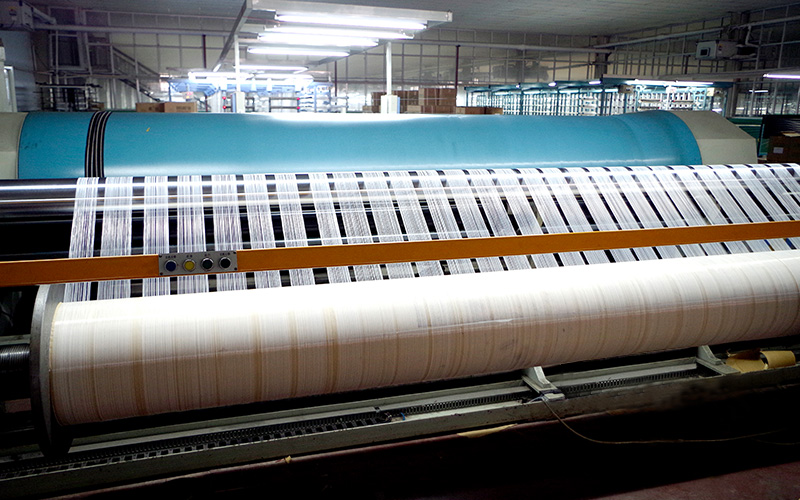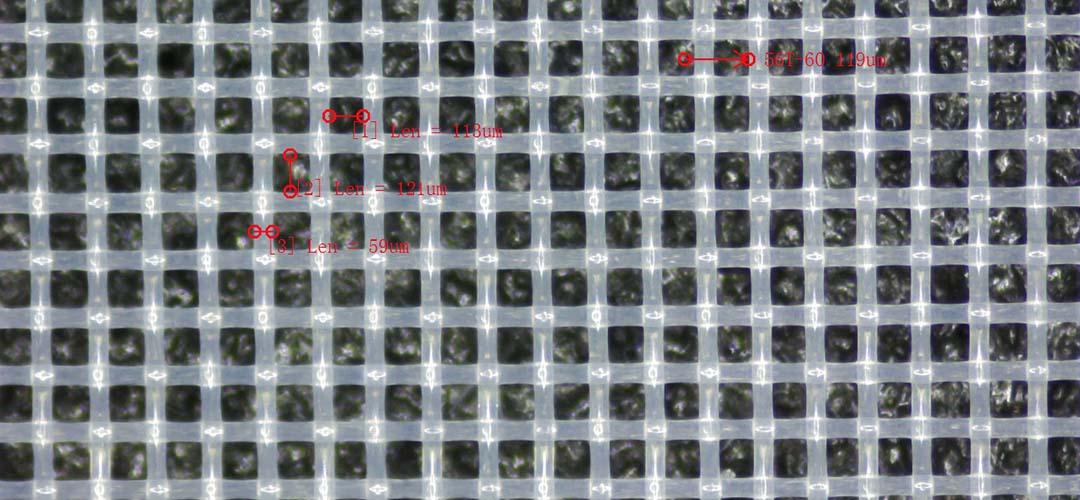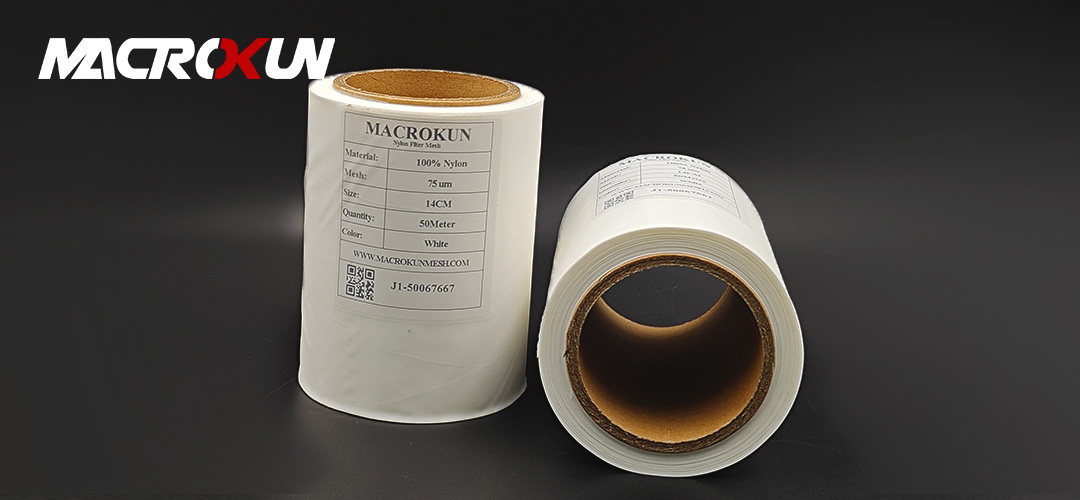Nylon mesh has emerged as a preferred choice for filtration media in various specialized applications, owing to its unique properties and advantages. One of the most significant benefits of nylon mesh is its exceptional strength and durability. Unlike other materials, nylon can withstand high pressures and harsh environmental conditions, making it ideal for demanding filtration processes. This resilience ensures that the mesh maintains its structural integrity over time, reducing the need for frequent replacements and ultimately lowering operational costs.
In addition to its strength, nylon mesh offers excellent chemical resistance. This characteristic is particularly important in industries where filtration systems are exposed to aggressive chemicals or solvents. The ability of nylon to resist degradation from these substances ensures that the filtration media remains effective and reliable, thereby enhancing the overall efficiency of the filtration system. Furthermore, nylon mesh is available in various pore sizes, allowing for precise filtration tailored to specific applications. This versatility enables manufacturers to select the appropriate mesh size to achieve optimal filtration performance, whether it involves separating fine particles from liquids or capturing larger debris.
Another advantage of nylon mesh is its lightweight nature, which facilitates easier handling and installation. This feature is particularly beneficial in applications where space is limited or where the filtration system needs to be frequently serviced. The lightweight design not only simplifies the installation process but also reduces the overall weight of the filtration system, contributing to energy savings during operation. Additionally, nylon mesh is often more cost-effective than other filtration materials, providing a balance between performance and affordability that appeals to a wide range of industries.
Moreover, nylon mesh exhibits excellent flow characteristics, allowing for efficient fluid movement through the filtration system. This property is crucial in applications where maintaining flow rates is essential for operational efficiency. The open structure of nylon mesh minimizes resistance to flow, ensuring that the filtration process does not impede the overall system performance. As a result, businesses can achieve higher throughput rates while maintaining the desired level of filtration.
The ease of cleaning and maintenance associated with nylon mesh further enhances its appeal in filtration applications. Many nylon mesh products can be easily cleaned and reused, which not only extends their lifespan but also contributes to sustainability efforts within organizations. By reducing waste and promoting the reuse of materials, companies can align their operations with environmentally friendly practices, which is increasingly important in today’s market.
In addition to these practical advantages, nylon mesh also offers aesthetic benefits. Its transparent nature allows operators to visually monitor the filtration process, providing immediate feedback on the system’s performance. This visibility can be crucial for identifying potential issues before they escalate, enabling proactive maintenance and minimizing downtime.
In conclusion, the advantages of nylon mesh in filtration systems are manifold, encompassing strength, chemical resistance, versatility, lightweight design, efficient flow characteristics, ease of maintenance, and aesthetic benefits. These attributes make nylon mesh an ideal choice for specialized filtration applications across various industries. As businesses continue to seek reliable and cost-effective solutions for their filtration needs, the adoption of nylon mesh is likely to grow, solidifying its position as a leading material in the field of filtration technology.
Nylon mesh has emerged as a versatile and effective filtration medium in various water treatment applications, owing to its unique properties and adaptability. As industries increasingly prioritize sustainability and efficiency, the demand for reliable filtration solutions has surged. Nylon mesh, with its excellent chemical resistance, durability, and customizable pore sizes, has positioned itself as a preferred choice for many specialized water treatment processes.
One of the primary applications of nylon mesh in water treatment is in the filtration of drinking water. The mesh effectively removes particulate matter, sediments, and microorganisms, ensuring that the water meets safety standards. Its fine mesh options can capture even the smallest contaminants, making it an essential component in pre-filtration systems. By utilizing nylon mesh, water treatment facilities can enhance the overall quality of the water supply, thereby safeguarding public health.
In addition to drinking water filtration, nylon mesh is also widely used in wastewater treatment. The mesh serves as a crucial barrier in various stages of the treatment process, particularly in the removal of solids and suspended particles. Its robust structure allows it to withstand the harsh conditions often found in wastewater environments, including exposure to chemicals and varying pH levels. Furthermore, the ease of cleaning and maintenance associated with nylon mesh ensures that it remains effective over time, reducing the need for frequent replacements and thereby lowering operational costs.
Another significant application of nylon mesh is in the filtration of industrial process water. Many industries, such as pharmaceuticals, food and beverage, and chemical manufacturing, require high-purity water for their operations. Nylon mesh filters can be tailored to meet specific filtration requirements, ensuring that contaminants are effectively removed without compromising the quality of the water. This adaptability not only enhances product quality but also helps companies comply with stringent regulatory standards.
Moreover, nylon mesh is increasingly being utilized in aquaculture and aquaponics systems. In these applications, the mesh plays a vital role in maintaining water quality by filtering out waste products and uneaten feed. By ensuring a clean and healthy environment for aquatic organisms, nylon mesh contributes to improved growth rates and overall productivity. Its lightweight and buoyant nature also makes it suitable for use in various tank designs, further enhancing its appeal in these specialized applications.

As the focus on environmental sustainability continues to grow, the role of nylon mesh in water treatment is becoming even more critical. Its recyclability and long lifespan contribute to reduced waste and lower environmental impact. Additionally, the ability to manufacture nylon mesh from renewable resources aligns with the increasing demand for eco-friendly materials in industrial applications. This shift not only benefits the environment but also positions companies that utilize nylon mesh as leaders in sustainable practices.
In conclusion, the applications of nylon mesh in water treatment are diverse and impactful. From ensuring safe drinking water to enhancing industrial processes and supporting sustainable aquaculture, nylon mesh serves as a reliable filtration medium that meets the evolving needs of various industries. As technology advances and the demand for efficient filtration solutions grows, nylon mesh is poised to play an even more significant role in the future of water treatment, solidifying its status as an indispensable component in specialized applications.
When considering filtration media for specialized applications, nylon mesh emerges as a compelling option, particularly when compared to other materials such as polyester, polypropylene, and metal meshes. Each of these materials has its unique properties, but nylon mesh stands out due to its combination of strength, flexibility, and chemical resistance. This versatility makes it suitable for a wide range of applications, from industrial processes to laboratory settings.
One of the primary advantages of nylon mesh is its exceptional tensile strength. This characteristic allows it to withstand significant mechanical stress without compromising its structural integrity. In contrast, while polyester mesh also offers good strength, it may not perform as well under extreme conditions, such as high temperatures or aggressive chemical environments. Nylon’s ability to maintain its shape and performance under such conditions makes it a preferred choice for applications that require durability and reliability.

Moreover, nylon mesh exhibits excellent chemical resistance, which is crucial in many filtration applications. It can effectively filter a variety of substances, including oils, solvents, and acids, without degrading. This property is particularly beneficial in industries such as pharmaceuticals and food processing, where contamination can have serious consequences. While polypropylene mesh also offers good chemical resistance, it may not be suitable for all solvents, limiting its applicability in certain specialized environments. Therefore, nylon mesh often provides a more comprehensive solution for diverse filtration needs.
In addition to its strength and chemical resistance, nylon mesh is also known for its flexibility. This flexibility allows it to be manufactured in various mesh sizes and configurations, catering to specific filtration requirements. For instance, in applications where fine particulate removal is essential, nylon mesh can be produced with very fine openings, ensuring that even the smallest contaminants are effectively captured. On the other hand, metal meshes, while robust, can be less adaptable in terms of mesh size and may not provide the same level of filtration precision as nylon.

Another important consideration is the ease of cleaning and maintenance. Nylon mesh can be easily cleaned and reused, making it a cost-effective option in the long run. Its resistance to fouling and clogging means that it can maintain its filtration efficiency over time, reducing the need for frequent replacements. In contrast, some other filtration media may require more intensive cleaning processes or may not be reusable at all, leading to increased operational costs.
Furthermore, the lightweight nature of nylon mesh contributes to its appeal in various applications. This characteristic not only simplifies installation but also reduces the overall weight of filtration systems, which can be a significant advantage in mobile or portable setups. In comparison, metal meshes can be considerably heavier, potentially complicating installation and maintenance.
In conclusion, while there are several filtration media options available, nylon mesh distinguishes itself through its unique combination of strength, chemical resistance, flexibility, and ease of maintenance. These attributes make it particularly well-suited for specialized applications across various industries. As businesses continue to seek efficient and reliable filtration solutions, nylon mesh is likely to remain a top choice, offering both performance and cost-effectiveness in demanding environments. By understanding the comparative advantages of nylon mesh, organizations can make informed decisions that enhance their operational efficiency and product quality.
Pre: Choosing the Best Nylon Mesh Filter Paper for Your Process
Next: Exploring the Adaptability of Nylon Mesh Fabric for Filter Design

MACROKUN has established long-term and stable cooperative relations with many transportation companies such as China Post, DHL, FEDEX, USPS, UPS, etc. Of course, MACROKUN can also provide air and sea transportation. The powerful logistics system enables all MACROKUN'S Printing Mesh, Filter Mesh and Filter Bags and so on to be easily and efficiently transported to any place. For quotes and inquiries, please email our sales team.





